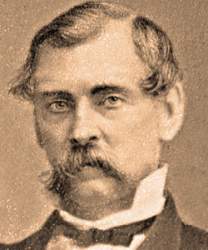Record Data
Transcription
HEAD-QUARTERS UNITED STATES FORCES,
PADUCAH, KY., Nov. 27, 1861.
General Orders No. 36.
On the afternoon of the 25th inst., a grave breach of discipline was committed by a part of this command, chiefly, if not altogether, by officers and soldiers of the Eleventh Indiana regiment, in the raising of a flag over the house of a resident of this city; not, certainly, by the act of raising our flag, but by the manner of proceeding — the attendant circumstances.
The commanding General desires to address those engaged in this proceeding in a kindly spirit. He is aware they have subjected themselves to prosecution under the Articles of War. He is compelled to denounce the transaction as a great violation of good order and military discipline; but he is inclined to the belief that those engaged in it will, upon reflection, come to regard it in that light themselves. Had it been possible for him to have anticipated its occurrence, it would have been his duty, by all the means at his command, and at every hazard, to have prevented it. The affair is the more mortifying to him from the fact that, in a long military life, it is the first proceeding of a mutinous character that ever happened with troops under his immediate command; that, if his feelings were wounded by the transaction, as he admits they were, he is confident that sensible, intelligent, and generous men, such as he believes compose the command he more especially addresses, will make due allowance for the pride and sensibilities of an officer who has given nearly thirty-seven years of life to the service of his country in the army.
Though the occurrence may subject him to criticism by those placed over him in authority, he is disposed to let it drop without investigation ; less, however, for his own sake than that of the persons engaged in it so disposed on his side, he trusts they will listen patiently to his remonstrances against like occurrences in the future.
In this spirit the commanding General appeals, then, to the intelligence of officers and soldiers. Although Kentucky is full of traitors, her Legislature left her one of the States of the Union; and our forces on her soil are charged with the high mission of protecting her people and sovereignty. More plainly, he desires every soldier, without regard to his position, to know that he is sent here by the Government as the protector of a loyal State, which, though occupied by rebel armies, is not an enemy's country; and that success requires him, by the patient exercise of moderation, obedience, and charity, to earn that character from both friends and foes. We charge the rebels with oppression; is it policy to subject ourselves, our cause, or our flag to like charges? Our boast is that we are fighting for a Government that never harmed a citizen; whose thanks will we earn if we are the first to rob ourselves of that boast:
The General has derived great satisfaction from the soldierly deportment of those he more particularly addresses; and it is hardly enough to say that it grieved him to see them manifest the slightest degree of disorder. All his hopes for the triumph of our flag and its redirection in all the rebellions States, are based upon the discipline of the army; and he feels every blow to that discipline as a blow at the common cause. Upon the restoration of peace, each soldier will go back to the civil pursuits from which he came. How important that he should do so without reproach or shame! Property, liberty, government — every thing precious — has been committed to the army. When the army supplants the commander, or turns from the path of order, or bursts the bands of discipline, it makes itself a thing of terror and ruin. Enthusiasm for the flag is a thing to be encouraged; the General would do every thing in his power to raise it to the highest pitch ; yet he calmly asks each soldier to watch its fiery impulse, lest, whilst fitting him for boldness in battle, it does plunge him unguardedly into excesses.
In conclusion, the General asks the soldiers of his command, by their conduct in the future, their gentleness to friends, and their moderation toward unarmed enemies, living under the shadow of our flag, to give him reason to believe they admit the necessity of order and are willing to enforce it. If they will only exercise their intelligence, and not forget the observance of law which so becomes them as citizens will still more become them as soldiers, no complaint will ever be heard against them from any source.
By order of Brig.-Gen. C. F. SMITH.
J. T. PICE, Lieut, and Aide-de-Camp.



